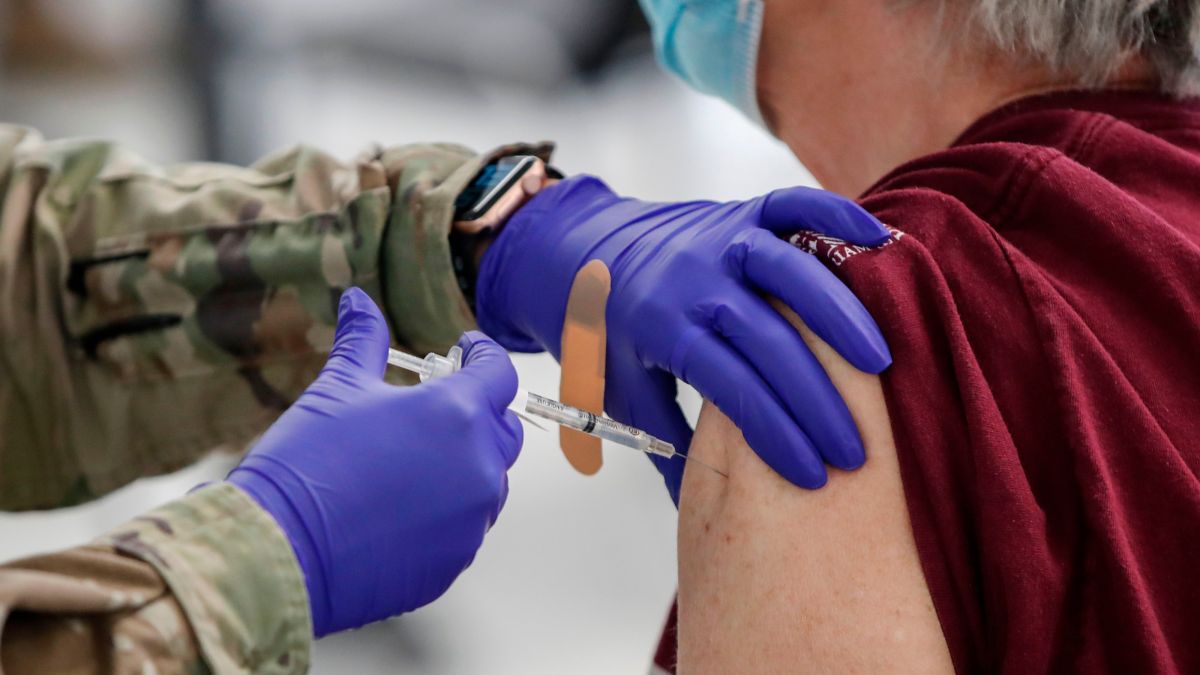Illinois plans to expand the list of people eligible for COVID-19 vaccinations in Phase 1B of its launch starting February 25.
Illinois Governor JB Pritzker announced on Wednesday that the state hopes to add people with “a high-risk medical condition” or comorbidity. The list includes people with cancer, diabetes, obesity, pregnant women and people with several other illnesses.
“In light of an increasing federal supply of vaccines, Illinois is making plans to expand Phase 1B eligibility on February 25 for people with CDC-defined underlying conditions and comorbidities,” the governor’s office said in a statement. “In addition, Illinois will also prioritize individuals with disabilities.”
The list of qualified high-risk medical conditions (which is subject to change) includes:
- Cancer
- Chronic Kidney Disease
- COPD (chronic obstructive pulmonary disease)
- Diabetes
- Cardiac Condition
- Immunocompromised state of a solid organ transplant
- Obesity
- Pregnancy
- Lung disease
- Sickle cell anemia
“Those who are under 65 and living with comorbidities, such as cancer survivors or those living with heart disease, are at an increased risk of serious complications or death if they contract COVID-19,” said Pritzker in a statement. “Illinois is advancing according to the CDC’s guidance to expand our eligible population as the offer allows, bringing us closer to the point where the vaccine is widely available to everyone who wants it. In the meantime, I encourage all Illinois residents to wear our masks and follow mitigating measures so that more of our neighbors are healthy and alive when it is their turn to get vaccinated. “
The expansion applies to those aged 16 and over who were not covered by previous eligibility categories, the state said, adding that it plans to work with local health departments and other providers as eligibility increases.
For a complete view of where and how you can make an appointment in Illinois or where you can receive vaccine information for your area, click here.
According to medical experts in Illinois and the United States, pregnant women were excluded from vaccine testing, so there was little information about vaccine safety for this group.
Earlier this month, White House health consultant Dr. Anthony Fauci said “no warning signs” were seen in the more than 10,000 pregnant women who have received vaccines so far.
The guidance released by the Centers for Disease Control and Prevention states that if a woman is part of a group recommended to receive the COVID-19 vaccine and is pregnant, she may choose to be vaccinated. A discussion with your healthcare provider can help you make an informed decision, the agency said.
Already, more than 3.2 million Illinois residents are eligible for vaccination under Phase 1B, which includes people aged 65 and over, as well as “essential frontline workers”.
Here is a look at who is already included, in addition to health professionals and those in long-term care institutions who were eligible in Phase 1A:
- Residents aged 65 and over
- Essential frontline workers, meaning “residents who are at increased risk of exposure to COVID-19 because of their work obligations, often because they are unable to work from home and / or must work close to other people without power distance yourself socially. This includes:
- First responders: Firefighters, police, 911 workers, security personnel, school officials
- Education: Teachers, principals, student support, student assistants, day care worker
- Food and Agriculture: Processing, plants, veterinary health, livestock services, animal care
- Manufacture: Industrial production of goods for distribution to retail, wholesale or other manufacturers
- Correctional and prison staff: Prison officers, youth institution staff, personal support workers, inmates
- USPS workers
- Public transport workers: Flight crew, bus drivers, train drivers, taxi drivers, para-transit drivers, personal support, ride sharing services
- Grocery workers: Baggers, cashiers, stockers, pickup, customer service
- Shelter and daycare staff: Homeless shelter, women’s shelter, adult day / drop-in program, sheltered workshop, psychosocial rehabilitation
